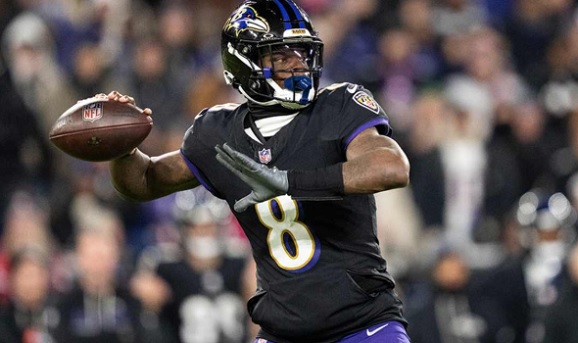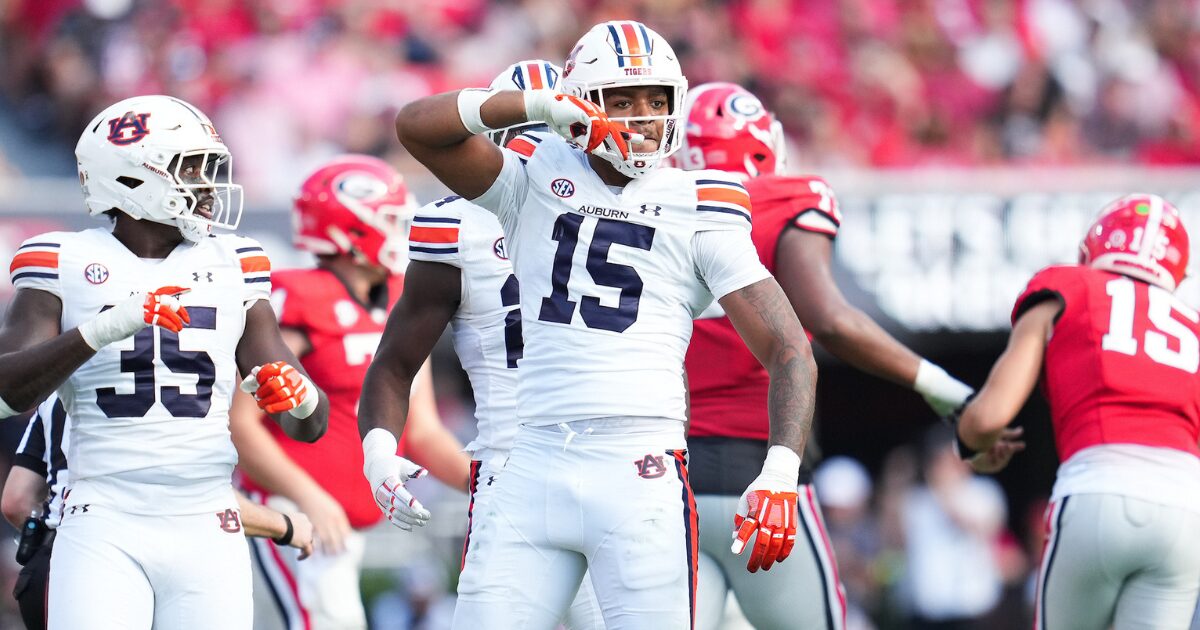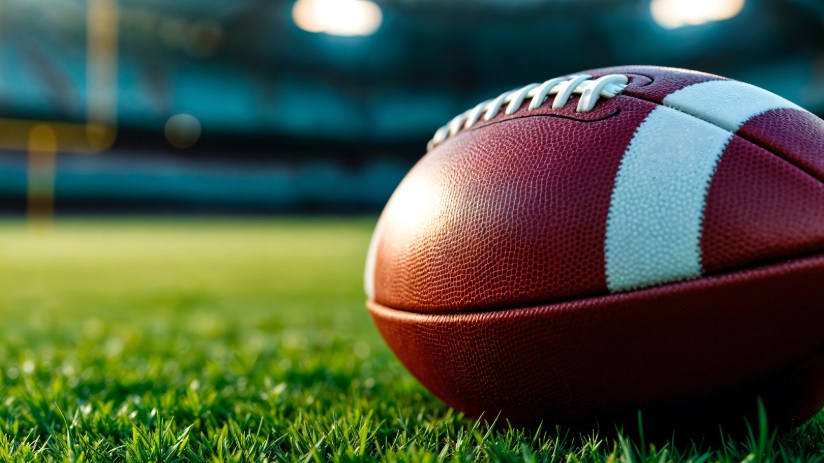Solid Starter
 Justin Herbert, QB, Oregon – Round 1
Justin Herbert, QB, Oregon – Round 1 
I think the Chargers had a very strong opening night of the 2020 NFL Draft. They needed a new franchise quarterback were able to land their target without moving up in the first round. Herbert has aspects to improve, but there is no doubt that he has a top-of-the-draft skill set with arm talent, size, mobility, and has quality intangibles off the field. Chargers general manager Tom Telesco did a superb job of not bidding against himself and trading up unnecessarily to land the franchise’s quarterback of the future.
The 6-foot-6, 227-pound Herbert has good size and a strong arm with the ability to make all the throws. He can fire passes into tight coverage and push the ball downfield with the strength of his arm. On top of power, Herbert shows a nice ability to loft in touch passes and throw receivers open. He can drop in passes with nice ball placement that leads his receivers and beats quality coverage with the location of his throws. Given his height and size, Herbert can comfortably stand tall in the pocket and demonstrate the patience to let routes develop.
Along with his arm talent, Herbert is a quality athlete who has the ability to pick up yards on the ground. He won’t be a true running quarterback in the NFL like Michael Vick, Cam Newton, or Deshaun Watson, but Herbert has the feet and agility to dodge pass rushers and extend plays while also being able to pick up yards on the ground. Herbert runs faster than the defense expects and is faster than most quarterbacks. There are a few first downs per game that mobile quarterbacks are able to pick up, and Herbert will bring that ability to his pro team.
Herbert shows advanced field vision to work through progressions and find the right receiver. With his size and pocket presence, Herbert stands tall in the pocket, showing patience and doesn’t panic if his first read is covered. On top of his field vision, Herbert makes good decisions and displays intelligence. If his offensive live gives him time, Herbert can absolutely pick apart a defense with his arm talent and also is able to use legs to create big plays when nothing is open. Physically, Herbert has a prototype skill set and ability.
The only negatives, weaknesses and concerns that NFL teams have about Herbert are related to his make-up. Team sources call Herbert a good kid off the field, but he is quiet and they have concerns about him not being a vocal leader. Some teams don’t care about a quarterback having that attribute, while others really want that. There are some who also question Herbert’s ability to lead his team to tough wins against good opponents and if he has a killer instinct to push his team to wins like a Tom Brady or Russell Wilson. Some of the sources who question that think Herbert could be a bottom-16 starting quarterback in the NFL. Some also question Herbert adjusting to life in the NFL after having lived in the same small town his entire life. Other team evaluators dismiss all of those concerns and point to some Pac-12 games in which Herbert led Oregon to victories and feel that he will be fine adjusting to NFL city life.
I think the Chargers will develop Herbert into being a solid starter. If they can build up a good offensive line, Herbert could propel them to being a dangerous team in the AFC. They have a talented young defense with skill position talent on offense. I think Herbert will become a solid starter for Los Angeles and could be good enough to win with along the lines of Eli Manning or Joe Flacco, if the supporting cast is good enough.
2019: Nasir Adderley, S
2018: Justin Jones, DT
2017: Forrest Lamp, G
2016: Hunter Henry, TE
2015: Denzel Perryman, LB
2014: Jason Verrett, CB
2013: Manti Te’o, LB
Most Likely To Bust
 Joe Reed, WR, Virginia – Round 5
Joe Reed, WR, Virginia – Round 5 
This really would not be a bust because the vast majority of fifth-round picks don’t stick in the NFL. The Chargers had only two picks over the first two days of the 2020 NFL Draft, so there weren’t many options for me to pick from. I don’t think that either first-round pick will bust, so that left some options from Day 3. Reed is a niche player, so that makes him more risky with a higher likelihood of him not sticking in the NFL.
While Reed is extremely fast, he never put together a big season as a receiver at Virginia. His best year as a wideout came as a senior with 77 receptions for 679 yards and eight touchdowns. He was a dangerous kick returner with some impressive averages (29.7, 27.2, 25.1) during his collegiate career. At 6-foot, 224 pounds, Reed is built well for the next level and is not undersized. Add in the 4.47-second time in the 40-yard dash, and it does not make sense as to why he was not a bigger presence at receiver. The Chargers drafted Reed to be a backup slot receiver and special teams returner, so that will be his role, but he has little margin for error to stick because there will be a lot of other players competing for return reps who might offer more upside as backup position players.
2019: Trey Pipkins, OT
2018: Uchenna Nwosu, LB
2017: Dan Feeney, G
2016: Max Tuerk, C
2015: Craig Mager, CB
2014: Chris Watt, G
2013: D.J. Fluker, OT
Potential Boom Pick
 Kenneth Murray, LB, Oklahoma – Round 1
Kenneth Murray, LB, Oklahoma – Round 1 
The Chargers taking Murray late in the first round was one of my favorite picks during the 2020 NFL Draft. I think Murray could be an outstanding playmaker in the middle of the Chargers’ defense. With a good young defensive line in front of him and Derwin James behind him, Murray could clean up and be a seek-and-destroy playmaker for Los Angeles.
As a linebacker, Murray is the complete package and a future three-down starter. He has good instincts, not great, but is quick to read his keys to get in position to make plays. For a big and thick linebacker, Murray has surprising speed to get to the perimeter and eats up space in a hurry. Murray has good length and weight to him as well, so that makes him versatile enough to play any linebacker position in a 4-3. Team sources say that Murray can really run and is a versatile linebacker who should excel as a Mike – middle – or outside linebacker.
In the ground game, Murray is a very physical tackler with sideline-to-sideline speed and has some ability to take on blocks at the point of attack. Murray is a very good tackler who wraps up ball-carriers and puts them into the turf with force. Murray has the size and mentality to take on blocks, holds his ground, shed the block, and get in on tackles. He was a tackling machine throughout his collegiate career from his superb run defense and projects to be a force to shut down and limit an offense’s ground game.
Murray is an asset for pass coverage. Team sources like his athleticism and coverage ability, which is vital to be a three-down starter and difference maker as a non-pass-rushing linebacker in the passing-driven NFL. He covers a lot of ground in zone coverage, is a smooth mover in space, and does a nice job of disrupting throwing lanes. His size and athleticism allows him to have the potential to play some man coverage on tight ends and backs out of the backfield. On dump-off passes to the flat, Murray explodes into the ball-carrier and is very good at making tackles in space. He has the speed to run down the middle seam as well. Murray’s skill set and instincts make him an excellent spy to help neutralize a mobile quarterback as well.
Some scouts say that Murray’s pass-rush ability is better than some players who do it on an every-down basis. He showed that he is a dangerous blitzer in 2019, displaying speed off the edge with the ability to bend, dip, and turn the corner. Multiple team sources said that Murray was a better prospect than other recent first-round linebackers, including Leighton Vander Esch, Haason Reddick, Tremaine Edmunds and Alec Ogletree. Evaluators feel Murray is closer to being on a par with Roquan Smith and Devin White, but maybe not quite as good as those two. Murray also had some teams flag him medically, and that caused him to go lower than where his talent level said he should go.
Given the talent on the Chargers’ defensive line, including Joey Bosa, Jerry Tillery and Melvin Ingram, Murray could be a force in the Los Angeles defense. It wouldn’t surprise me if he becomes a steal for the Chargers and a Pro Bowl linebacker in the NFL in the mold of a Thomas Davis.
2019: Jerry Tillery, DT
2018: Derwin James, S
2017: Mike Williams, WR
2016: Joey Bosa, DE
2015: Melvin Gordon, RB
2014: Jeremiah Attaochu, OLB
2013: Keenan Allen, WR
Future Depth Player
 Joshua Kelley, RB, UCLA – Round 4
Joshua Kelley, RB, UCLA – Round 4 
The Chargers needed another running back option after losing Melvin Gordon in free agency. The 5-foot-11, 214-pound Kelley has the ability to be a hard-nosed downhill back to help lessen the load on Austin Ekeler. In 2019, Kelley averaged 4.6 yards per carry for 1,060 yards and 11 touchdowns. He had 11 receptions for 71 yards and a touchdown as well. Kelley is a physical back who can pick up yards after contact and is a tough back to pound the ball between the tackles. He may not have the special ability to be a full-time starter in the NFL, but he could be a good backup and rotational back for the Chargers.
2019: Drue Tranquill, LB
2018: Kyzir White, S
2017: Desmond King, S
2016: Joshua Perry, LB
2015: Darius Philon, DT
2014: Marion Grice, RB
2013: Steve Williams, CB
Walt’s 2020 NFL Draft Grades:
6. Justin Herbert, QB, Oregon – A Grade
The Chargers must be praised like the Dolphins were for not trading up and yet still being able to land a franchise quarterback. The only reason this isn’t an A+ is because I don’t like Herbert as much as Tua Tagovailoa. I worry about Herbert making lots of mistakes once he’s thrust into real NFL action – unlike the safe Senior Bowl and combine situations – but it’s not like first-round quarterbacks pose much risk anymore. Just look at the Cardinals. They drafted Josh Rosen, then gave up on him for Kyler Murray with no penalty. This is the right pick because of the upside.
23. Kenneth Murray, LB, Oklahoma – C- Grade
Had the Chargers just possessed the 23rd-overall pick and selected Kenenth Murray, I would’ve been fine with it. However, they sacrificed a third-round pick to move up for Murray, which seems like a mistake. The Chargers now lack resources to keep improving Justin Herbert’s supporting cast. The Chargers have some holes on their offensive line, and they don’t have much in the backfield beyond Austin Ekeler. They should have used this pick to build around Herbert, especially after giving up a valuable pick.
112. Joshua Kelley, RB, UCLA – B Grade
The fit is obvious, as the Chargers lost Melvin Gordon and needed to find a running back to pair with Austin Ekeler. Kelley was projected as a fourth-round choice, so it makes sense for the Chargers to take a local product at this spot.
151. Joe Reed, KR, Virginia – C- Grade
Joe Reed is a kick returner only. I can’t see him playing on offense, but he should be able to help on special teams. The Chargers could have drafted him a round later though.
186. Alohi Gilman, S, Notre Dame – B Grade
Alohi Gilman is an inconsistent tackler and cover player, but he has enough potential to be worth a sixth-round pick. This is a solid choice.
220. K.J. Hill, WR, Ohio State – A+ Grade
I look forward to Charlie Campbell’s Why the Slide on K.J. Hill because he could’ve been chosen in the third round. He’s a great route runner, so I wouldn’t be surprised if he makes an NFL roster and contributes sometime soon despite being a seventh-round pick.
2020 NFL Draft Team Grade: B- . Follow Walter @walterfootball for updates.
Los Angeles Chargers Season Preview
Fantasy Football Rankings - Feb. 19
2026 NFL Mock Draft - Feb. 17
NFL Picks - Feb. 9
NFL Power Rankings - Jan. 26



